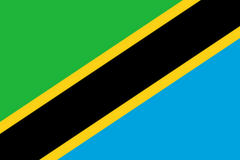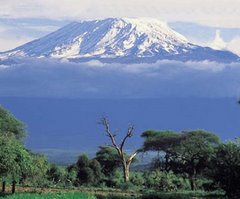1-IVESTMENT INCENTIVES AND GUARANTEES
Tanzania offers a well-balanced and competitive package of fiscal incentives in comparison with other African countries. Aiming at providing competitive fiscal regime on foreign trade, Tanzania has signed double taxation treaties with Denmark, India, Italy, Norway, Sweden, Kenya, Uganda, Zambia and Finland. Countries with which negotiations are continuing include South Africa, Republic of Korea, Zimbabwe, United Arab Emirates, Russia, Seychelles, Mauritius, Egypt, Yugoslavia and Oman.Investments in Tanzania are guaranteed against nationalisation and expropriation. Tanzania is a signatory of several multilateral and bilateral agreements on protection and promotion of foreign investment. Among other international agreements and membership, Tanzania is a member of Multilateral Investment Guarantee Agency (MIGA) and International Centre for Settlement of Investment Disputes (ICSID).
2-ABUDANT NATURAL RESOURCES
Tanzania’s untapped natural resources offer a wide range of investment opportunities; arable land, minerals and natural tourist attractions are all awaiting potential investors. Tanzania is internationally renowned for its abundance of wildlife attractions and unexploited mineral reserves. These sectors (Mining and Tourism) are the leading recipient of foreign investment flow and are tipped to become the “growth sectors” of the economy.
3-STABLE INVESTMENT POLICY AND “ONE STOP FACILITATIVE CENTRE”
Tanzania Investment Centre (TIC)The pro investment attitude by Government is clearly demonstrated by the innovative investment legislation, the increasing number of foreign direct investments in the country and economic and structural reforms that have led to substantial progress in establishing a functioning market economy. Institutional support for priority investment projects is readily available from the Tanzania Investment Centre (TIC) and other Government institutions.TIC is the focal point for investors. It is a first point of call for potential investors. It is an efficient and effective investment promotion agency, a “one stop facilitative centre for all investors”, engaging in the business of marketing Tanzania as an investment destination. In order to strengthen and expedite facilitation services, 7 senior officers from Government or its executive agencies have been permanently stationed at TIC to serve investors under the general direction of the TIC Executive Director. Presently these officers include those from:
Lands Department
Tanzania Revenue Authority (TRA)
Immigration Department
Labour Division
Directorate of Trade
4-BUSINESS REGISTRATION & LICENSING AGENCY(BRELA)
In response to Scholars and consultants recommendation, TIC is currently undertake targeted promotion of investments internally and abroad based on thorough research. Market research-driven investment promotion tends to be more efficient in cutting costs of promotion and achieving more desirable investment outcome
5-STABLE MACROECONOMIC PERFORMANCE AND FISCAL REGIME
Tanzania had been carrying out successful economic and structural reforms, which have improved economic performance and sustained growth. These achievements are based on solid foundations of political and economic reform undertaken by the Government since 1986, placing Tanzania in a position where a prolonged period of high GDP growth rates is expected. In addition, Tanzania has a stable fiscal regime with sustainable level of inflation. Under its economic recovery program, Tanzania increased revenue streams and substantially reduced spending. Continuous decline in the rate of inflation is mainly the result of prudent fiscal and monetary policies. However, Tanzania has to reduce further the cost of doing business to stimulate supply response at micro-level. This is important in order to complement the current achievements on macroeconomic and political stability by greater efforts to improve the investment climate.
6-PRIVATE SECTOR DEVELOPMENT DURING THE PAST DECADE
Tanzania has distinguished itself as one of the few African countries that have radically transformed their economies. Successes of these reforms are reflected in the country’s strong macroeconomic fundamentals with consistently increasing growth rates, consistent falling inflation and increasing inflow of FDI. One of the factors that contributed to this success is the country’s unwavering commitment to build a strong private sector. This achievement is a result of a number of measures to reform the business environment by improving transparency of the investment process and encouraging stakeholder participation. A number of institutions and forums have been put in place to ensure a broader participation of different stakeholders including representatives of the private sector, trade unions, professional associations, media, and Government departments and other representatives of civil society. Existing institutions with stakeholder participation in the investment process include: Tanzania National Business Council; Investor’s Roundtables; Special Reform Task Forces; Investment Seminars; Board membership in TIC and other Government Agencies.The Tanzania National Business Council 50% government and 50% Private Sector is the lead dialogue institution where government interact with diverse stakeholder representatives from the private sector for dialogue on strategic issues related to the investment process and business environment in Tanzania. The Council is chaired by the President of Tanzania. The President’s commitment to transparency manifests itself in the workings of the roundtables such as the local Investor’s Round Table (LIRT), International Investor’s Roundtable (IIRT) and the Chief Executive Officers (CEO) Roundtable where the President meets private sector representatives on a regular basis to discuss specific issues aimed at improving Tanzania’s business competitiveness.
7-INFRASTRACTURE FACILITIES
Infrastructure is one of the key investment drivers of which Tanzania is struggling to improve. There is a sustained programme for building good quality roads. Two railway networks connect 14 out of 20 cities and the neighbouring country of Zambia. There are also international and domestic airports linking Tanzania to the world. The three major ports of Dar es Salaam, Tanga and Mtwara function as hubs for traffic emanating from, and destined to land locked neighbouring countries of Uganda, Burundi, Rwanda, Zambia, Malawi, and Democratic Republic of Congo.However, Tanzania has to make further improvement in the investment climate, especially in the provision of infrastructure including competitive public utilities and taxation area (multiplicity of taxes especially at local government level) and.
8-PEACE AND STABILITY
Tanzania is free of ideological confrontations, ethnic problems and labour disputes. It is a centre of economic and political stability in Sub Saharan Africa. Multi party democracy adopted in 1992 has not disturbed the peaceful political climate of the country. The political scene is characterised by parliamentary democracy and public consensus on key social and economic priorities.
9-LABOUR SKILLS AND AVAILABILITY
Access to skilled labour is a key priority for companies competing in African economies. The Government has made a long-term commitment to develop a pool of well-trained and educated specialists. The Government has increased its education budget significantly compared to the previous budget. Thus Tanzania has to further improve human capabilities and encourage technology transfer as a precondition for enhancing productivity of investment and attaining the desired level of competitiveness
Tuesday, September 11, 2007
Subscribe to:
Post Comments (Atom)



1 comment:
While TZ is a great place to invest - certainly in comparison to its neighbours, why are you all sitting in Kansas and not building TZ?
Post a Comment